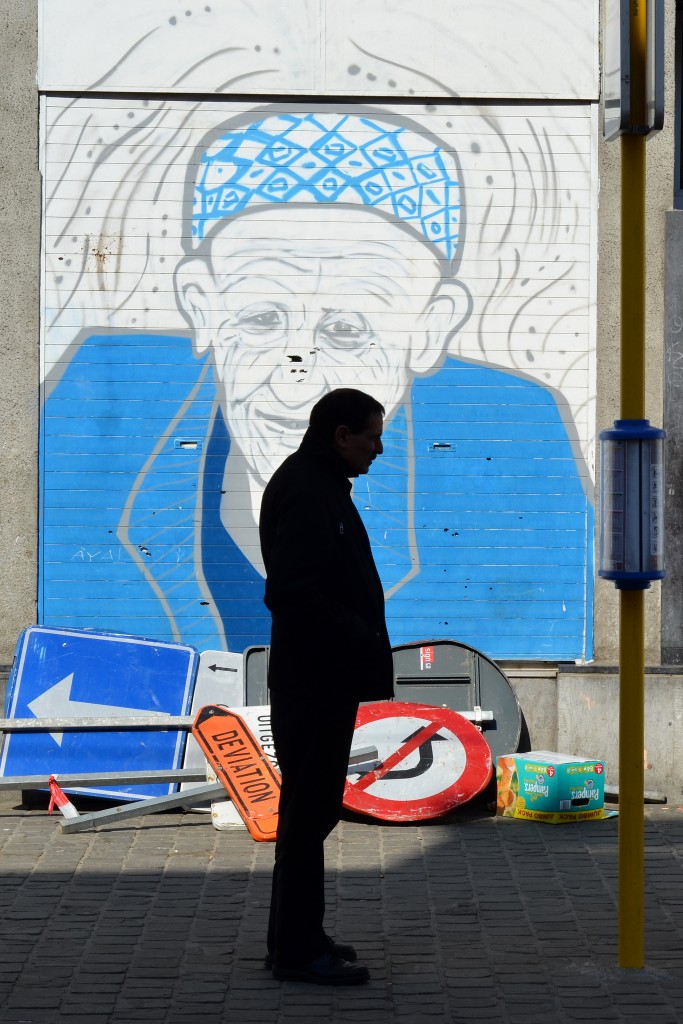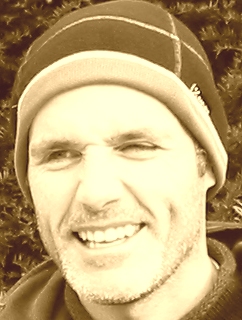The Brussels connection: Turning the tide on radicalisation
Belgium says it is working to combat radicalisation in Brussels. But is it doing enough to counter jihadist narratives and address exclusion?

Photo: ©Simon Blackley
Tuesday 17 November 2015
I almost felt sorry for Jan Jambon, Belgium's Interior Minister, as he tried not to stand out too much during a joint press conference on 16 November with his French counterpart, Bernard Cazeneuve, in the wake of the Paris terror attacks last week.
But even if he could shrink by 30cm, there would be no hiding from the evidence that Belgium's intelligence community may have dropped the ball… or were perhaps never in the game.
Belgium stands accused of being a “hotbed” for terrorists, or more euphemistically, disenfranchised Muslim youth, mostly in and around the poorer inner suburbs of Brussels, and that this is apparently not news to anyone in the intelligence community.
Only a few days before the Paris attacks, on 9 November, the Belgian interior minister claimed during POLITICO's What Works event that Belgium was making some headway, citing its actions to shut down a terror cell in Vervier last January, and its awareness-raising efforts or “counter-narratives” for would-be youth thinking of, for example, joining ISIS. He said a tailored, one-to-one approach is more successful than top-down narratives like ads and internet campaigns.
He spoke to POLITICO's Matt Kominski about the challenges he and the Belgian authorities face in dealing with ISIS fighters returning from Syria. Many don't come back more hardened and angry, but rather feel “disgusted” at what they experienced. This, he suggested, is a useful counter-narrative weapon.
But the audience wasn't buying it, asking why Belgium hadn't put these young people on television or in internet ads as powerful, personal testimonials, or tried more mainstream approaches to stopping the momentum towards radicalisation, such as investing more in rejuvenating poor neighbourhoods and helping to integrate immigrant families better.
By his own admission, Mr Jambon said: “People think that mosques are the places of recruitment, but I think that today, most of the recruitment is done by the internet… The mosques were too moderate and they find their ‘truth' on the internet.”
Then, as the saying goes, shouldn't you fight fire with fire? If the internet is the medium of choice for young people – and it clearly is – then well-meaning teachers and social workers are only going to have so much impact. The problem is, governments (not just in Belgium) are playing catch-up as they grapple to deal with the growth in online propaganda and extremism.
“Modern terrorists have embraced social media and ‘weaponised the internet' to achieve their goals,” Mark Wallace, former US ambassador to the UN, told journalists at the Brussels launch of the European arm to the Counter Extremism Project (CEP) in July this year.
Yet Mr Jambon argued targeted messaging like that might lack credibility or come across as government propaganda. Maybe this is true, but it would at least send ‘a' message, rather than leaving everything in the hands of overworked social workers in Brussels communes like Molenbeek, which has been identified as something of a ground zero for several incidents, including the recent Paris attacks and possibly the Jewish Museum murders in 2014 and the Thalys attempt last August.
Belgium's Prime Minister Charles Michel said his government's efforts until now have focused on prevention but that they now realise tougher measures are needed against jihadists returning from the battlefields in Syria and Iraq to Belgium.
But in Belgium sometimes it takes a shock event like the Paris attacks – and the extra heat Belgium is now getting from its neighbours who will no longer accept excuses – to galvanise its people and the authorities into action.
Mr Jambon acknowledged during the POLITICO event before the Paris attacks that Brussels was a hotspot for trouble (and it is reported at one point to have had more foreign fighters in Syria than any other European country per inhabitant). He said information-sharing between federal, regional and communal police forces is complicated, and that terrorism is a cross-border issue which only exacerbates matters. Indeed.
The Daily Beast confirms this fragmentation problem: “Security services in the city of Brussels have another significant issue: for a population of 1.3 million inhabitants, the local police force is divided up in six police corps spread over 19 boroughs. Sharing security information in that setting could only be complicated.”
In a piece about the role of the internet in dealing with terrorist extremism (‘Defusing the social media time bomb'), I wrote: “At some point, probably at the lowest ebb, enough people (digital natives presumably) will have had enough of their youthful innocence being stolen from them by radicals and extremists… murderers hiding behind a perverted cause. But have we reached the lowest ebb?”
That was back in July and I wrote that it already seemed like we had reached that point. But I was wrong. A new low water mark has been reached. Can we turn the tide before it gets any lower? I certainly hope so.



Thanks Jeff for your feedback. On the grand scale of things, the mosques now seem like a distraction. It’s way more complicated… You’ve got socio-economic and socio-cultural factors, identity crises, youth crises, media proliferation and disinformation (and the not unrelated copycat killing phenomenon; just look at the number of shootings by disenfranchised people in the US alone), wrong-headed political decisions (Axis of Evil, Iraq War II… what were they about?), resource crunch, regional strains (EU, Caucasus, Middle East) and the list goes on… I’m trying to think of a plus-side just so that it doesn’t all sound so dire. Maybe I’ll have to come back to you on that! Anyway, have a safe weekend. Christian
Agree wholeheartedly. Most of the jihadists seem to have come from not particularly religious backgrounds (generally born into a muslim family though) and then undergo a very rapid process of indoctrination via social media. Those who tried to join their local mosques in the west were often criticized for espousing truly extreme views and left after a week or two.
And then there are some who don’t even do that and instead seem to commit these acts out of a desire to achieve a victory for “the Muslim people”. The focus for them is almost ethnic more than it is religious. I just read that two of the Paris murderers owned a bar near Belgium as recently as three months ago. I suspect they fall into that latter category.